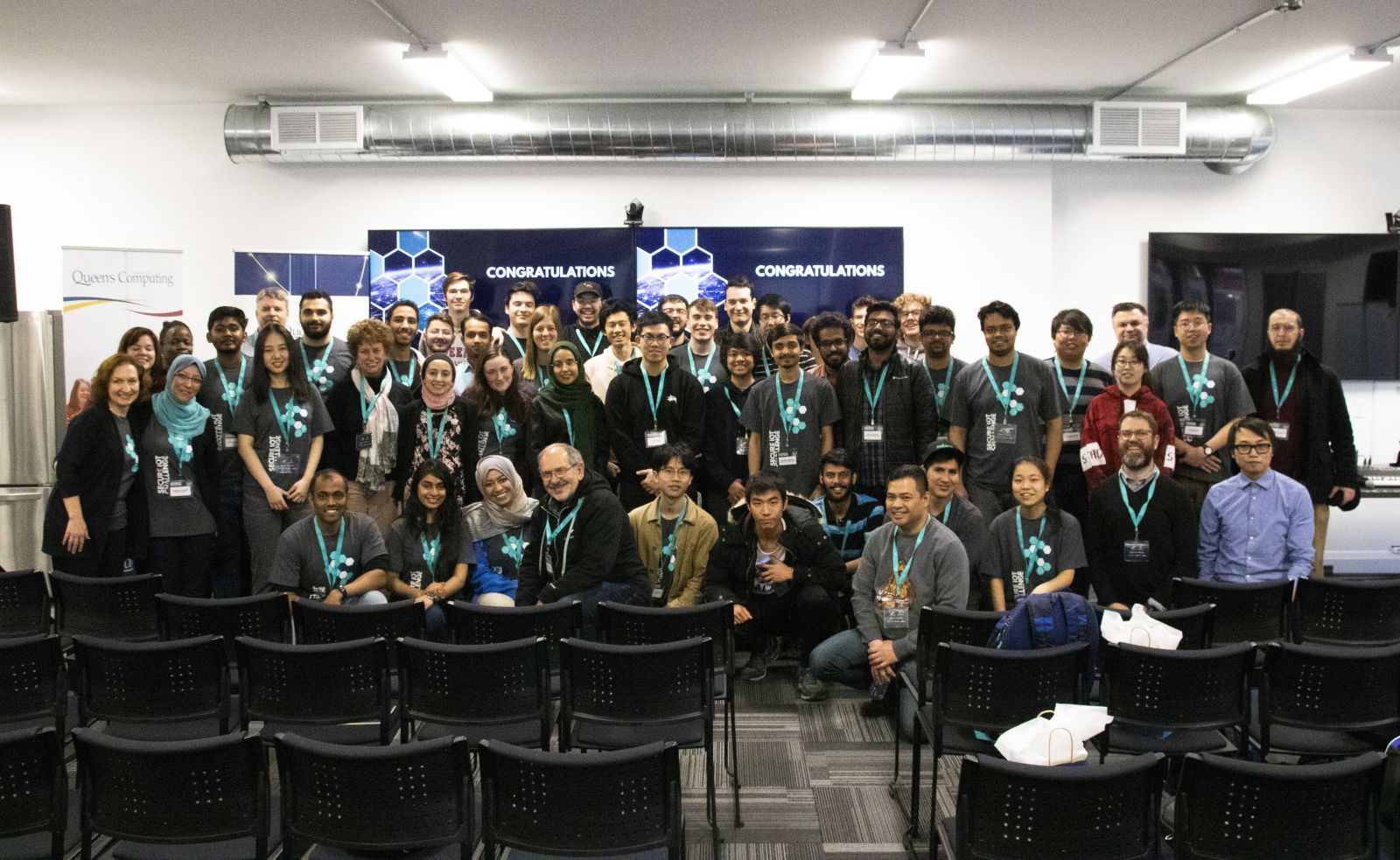Three of Canada’s leading tech companies, TELUS, BlackBerry and Solace came together with L-SPARK in 2019 to create the Secure Internet of Things (IoT) Accelerator Program, powered by an innovative secure IoT platform. Following that program’s success, Queen’s Partnerships and Innovation (QPI), the Queen’s School of Computing (QSC) and L-SPARK collaborated to design and launch the Secure IoT Challenge at Queen’s in January. The Challenge encompasses several components, starting with a weekend hackathon, followed by a mentorship period for four teams and will culminate in April, with the four teams showcasing their projects at a special Queen's event.

From February 28 – March 1, 2020, these tech companies and collaborators made this leading-edge secure IoT platform available to Queen’s and RMC students, faculty and staff through the Secure IoT Challenge Hackathon.
The weekend began in a state of organized chaos – over 50 students and faculty assembled just after 5 pm at Seaway Coworking at 310 Bagot Street on Friday, February 28 with the goal of using the Secure IoT development kit to solve a problem over the course of the following two days.
The hackathon kicked off with introductions by L-SPARK, QPI and QSC followed by a pitch session where individuals shared their ideas and then a brief team formation exercise. It was then time for the students and participating faculty to hunker down and get to work.
“We had a very short time window to organize and launch this hackathon,” says Hossam Hassanein, Professor at the School of Computing. “All of the organizers were really efficient and we were able to make the event a success for the participants.”
The Secure IoT Challenge and hackathon is the first of its kind at the university. Participants were given exclusive access to the pre-commercial innovative Secure IoT platform in the form of a development kit to create their own applications. The secure IoT platform integrates TELUS Global Connectivity and root trust security with BlackBerry’s secure operating system and Solace’s data movement capabilities.
“This could easily be one of the best hackathons I’ve participated in the last 20 years,” says Steven Ding, Assistant Professor at Queen’s School of Computing. “A lot of innovative and inspiring ideas have come from this weekend.”
Several awards were presented at the end of the weekend and four teams were selected to receive business mentorship from L-SPARK, plus up to $5,000 for project expenses from Queen’s University.
Teams awarded mentorship and up to $5,000 in project expenses:
- TeleAngel
- Pipefine
- Efficient Croptracker
- Pill-o-Talk
TELUS Prize for Best Use of TELUS CAT-MI IoT Network: Pipefine and CrashLytics
Blackberry Prize for Most Security Conscious Design: TeleAngel
Solace Prize for Best Overall Implementation of Secure IoT Dev Kit: Watermelon Tech
Queen's Partnerships and Innovation and Venture Club Prize for Most Innovation Solution: VehicleGeoFencing
Queen's School of Computing Prize for Most Technically Innovative Idea: Library Tech
The mentorship period will run from March 9, 2020 until April 16. Upon completion of the mentorship period, these four teams will have the opportunity to participate in a showcase at the Queen’s Partnerships and Innovation’s launch event. Following the showcase, two teams will be chosen to pitch at an upcoming L-SPARK event.
“I’m really impressed by the calibre of ideas and projects that developed over the weekend,” says Jim Banting, Assistant Vice-Principal (Partnerships and Innovation). “I’m keen to see where these projects go in the future.”
 About Vice-Principal Research
About Vice-Principal Research